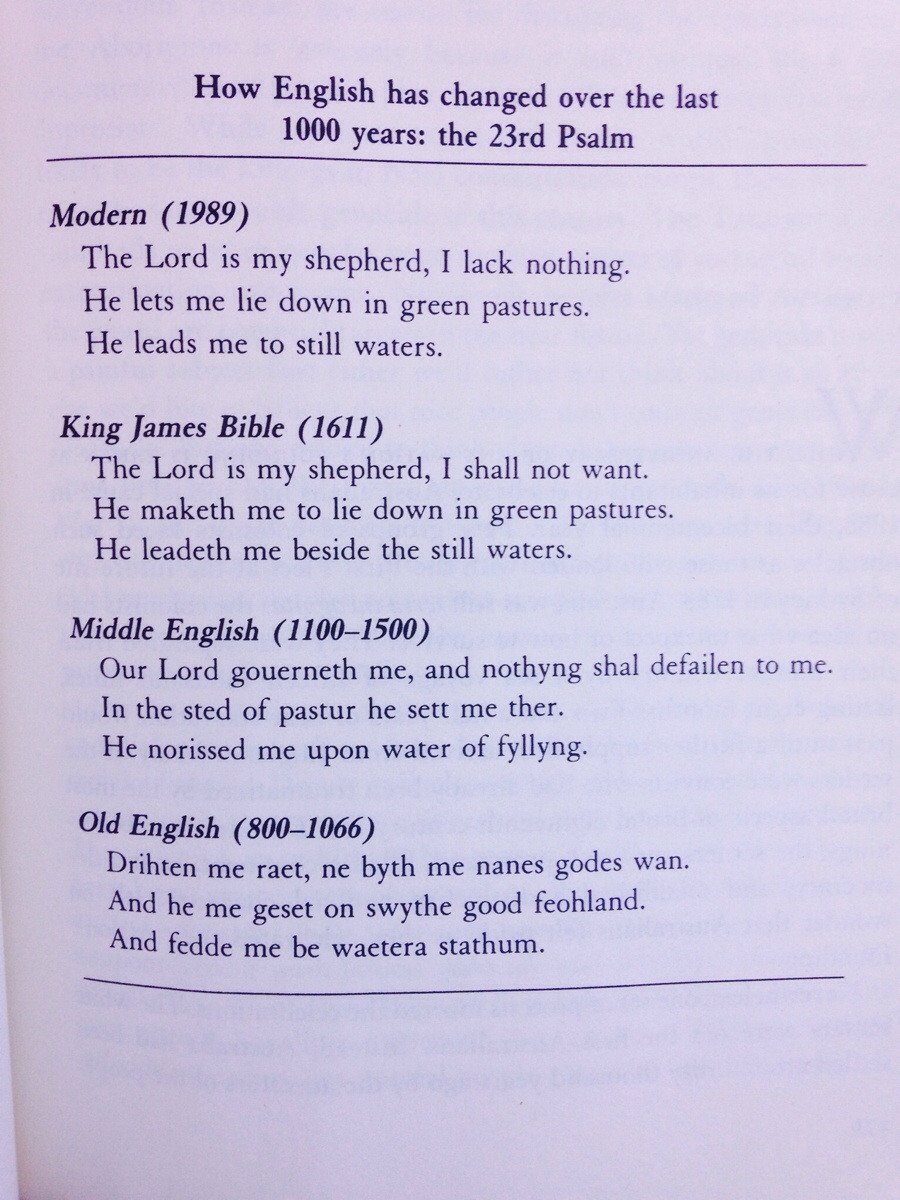systlin:beautifultoastdream:denchgang:bluecaptions:How English has changed in the past 1000 years.th
systlin:beautifultoastdream:denchgang:bluecaptions:How English has changed in the past 1000 years.the big mans a lad i have fuck all, he lets me have a kip in a field he showed me a pond I think my favorite part is how the first three are totally comprehensible to a modern reader, and then the fourth one is just “Wait, what?” You can practically see where William the Conqueror came crashing into linguistic history like the Kool-Aid Man, hollering about French grammar and the letter Q.^ I FUCKIN SPIT MY DRINK UPPredicting what language will look like in the future is so difficult because so much of language change has to do with minuscule, hardly noticeable variation. Except sometimes, a massive change sweeps across the population (see, for example: William the Conquerer and his invasion of England). These big events are impossible to predict (not that the small events are more likely to predict).That said, I am in love with @denchgang’s humorous modern (British? MLE? Slang?) rendition. Can you imagine how this sort of linguistic register might sound in 100 or 200 years? While I don’t expect it will sound formal, per se, it would likely sound very antiquated, like how slang from the late 1800s/early 1900s sounds to our ears.Speculation about the future is just that: speculation. But we can also use what we know about historic changes to anticipate some of the changes that could happen in the future. For instance, we know vowels can shift (and are shifting). Some consonants change, get lost, or are created. Tone comes and goes. Slang and vocabulary is invented and falls out of favor. All that said, we still can’t truly predict where it’s going next. -- source link
Tumblr Blog : bluecaptions.tumblr.com
#language change#linguistics#english
